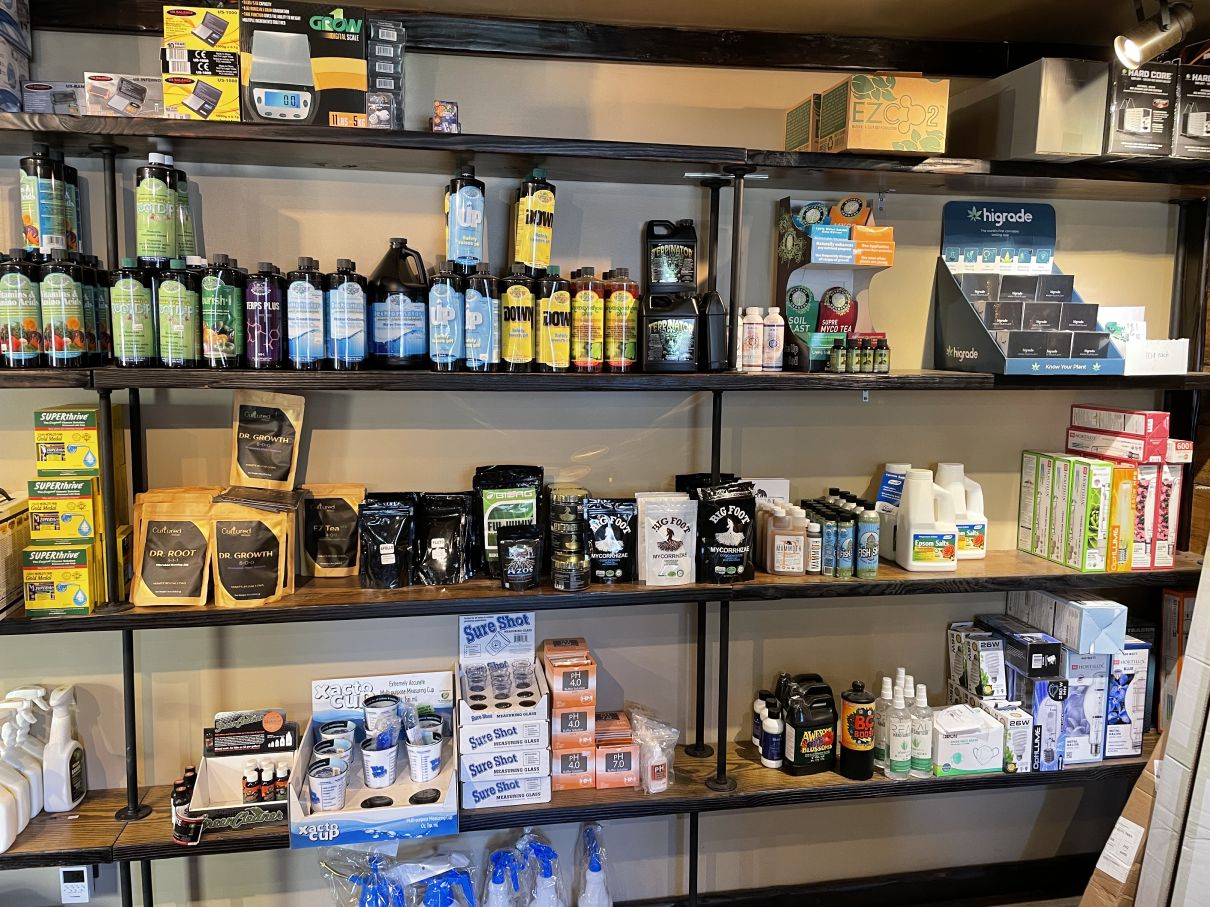Unravel the Secrets of Successful Planting with The Indoor Earthworm
Unravel the Secrets of Successful Planting with The Indoor Earthworm
Blog Article
Enhance Your Horticulture Skills With Hydroponics: Exploring Benefits
The technique of cultivating plants without soil might seem unusual at initially, but its advantages are worth considering. As we dig right into the globe of hydroponic gardening, we uncover a variety of advantages that not just improve plant growth but likewise supply distinct chances for individuals looking to raise their horticulture skills.
Benefits of Hydroponic Gardening
Hydroponic horticulture provides countless advantages because of its efficient use resources and precise control over plant growth problems. By supplying plants with direct accessibility to nutrients dissolved in water, hydroponic systems eliminate the demand for dirt, reducing water use by approximately 90% compared to typical soil-based growing. This efficient nutrient distribution method also enables faster plant development prices and higher yields, making hydroponic gardening an eye-catching choice for optimizing minimal room and resources.
Furthermore, the controlled atmosphere of hydroponic systems allows farmers to optimize variables such as moisture, ph, and temperature level degrees, resulting in healthier plants with lowered threat of conditions and insects. This exact control over growing conditions not just advertises faster and extra constant plant development yet likewise enables year-round growing despite outside weather.
Faster Plant Development With Hydroponics
Using innovative nutrient delivery systems, hydroponic horticulture assists in accelerated plant development prices compared to conventional soil-based cultivation methods. In hydroponic systems, plants have straight access to crucial nutrients liquified in water, enabling for optimum absorption without the need to expend energy creating substantial root systems to look for nutrients in the dirt. This reliable nutrient distribution system enables plants to reroute their power towards robust vegetative growth and respected fruiting or blooming.
Moreover, the regulated environment in hydroponic configurations ensures that plants receive the suitable problems for development consistently. Aspects such as temperature level, humidity, light, and pH degrees can be diligently kept track of and gotten used to develop the ideal growing setting for every plant selection. By eliminating the variability existing in soil-based horticulture, hydroponic systems provide plants with a secure and positive setting that optimizes their growth possibility.

Water Conservation Perks
Provided the effective nutrient delivery device and regulated setting of hydroponic systems, one considerable advantage worth exploring is the preservation of water sources. Hydroponic horticulture uses up to 90% less water compared to conventional soil-based horticulture approaches. This significant decrease is credited to the closed-loop system where water is recirculated and recycled, minimizing waste. In traditional soil gardening, water is shed via evaporation, runoff, and percolation beyond the origin zone, bring about ineffectiveness. Nonetheless, in hydroponics, the nutrient option is supplied directly to the plant origins, ensuring optimal water uptake and minimizing water loss.
Additionally, hydroponic systems allow for specific control over water use, with the ability to adjust and keep an eye on nutrient levels based on plant needs. This targeted technique avoids overwatering, a common issue in soil-based horticulture, more adding to water preservation efforts. By maximizing water efficiency and reducing waste, hydroponic horticulture occurs as a lasting and green option for individuals aiming to minimize their water consumption in gardening practices.
Year-Round Plant Cultivation

By regulating elements such as nutrient, temperature, and light levels, hydroponic systems allow plants to flourish no matter outside weather condition conditions. This regular atmosphere permits continual plant development and harvest, supplying a trusted supply of fresh fruit and vegetables even in the dead of winter months.
Moreover, the ability to grow plants year-round in hydroponic systems opens visit site possibilities for cultivators to explore a wider selection of plants, expand their expanding periods, and boost overall productivity. This versatility and reliability make year-round plant growing in hydroponics a beneficial tool for both enthusiasts and commercial farmers seeking to optimize their gardening efforts.
Enhancing Gardening Abilities Through Hydroponics
Establishing effectiveness in hydroponics can equip gardeners with a much deeper understanding of plant cultivation techniques and improve their general gardening abilities. Hydroponic systems offer a regulated atmosphere where gardeners can very closely keep track of and adjust variables such as nutrient levels, pH equilibrium, and lights problems to maximize plant development. By mastering these aspects, garden enthusiasts can fine-tune their skills and expertise, resulting in even more effective harvests and much healthier plants.
Moreover, hydroponic horticulture obstacles traditional concepts of soil-based cultivation, motivating gardeners to believe outside package and explore innovative growing methods. This trial and error can foster imagination and analytic abilities, as gardeners discover to adjust and troubleshoot concerns unique to hydroponic systems. In addition, the performance of hydroponic setups, such as vertical yards or nutrient film strategies, can show garden enthusiasts just how to make the most of space and sources effectively.
Verdict
To conclude, hydroponic horticulture offers many benefits such as faster plant development, water preservation, and year-round cultivation. By exploring the advantages of hydroponics, people can improve their gardening skills and achieve effective plant growth. Take into consideration including hydroponic methods right into your horticulture techniques to optimize effectiveness and efficiency in your yard.
As we dig right into the world of hydroponic gardening, we reveal a myriad of benefits that not just enhance plant development however additionally supply one-of-a-kind possibilities for individuals looking to elevate their gardening skills.Making use of innovative nutrient shipment systems, hydroponic horticulture facilitates accelerated plant development rates informative post compared to conventional soil-based farming approaches. By eliminating the variability present in soil-based horticulture, hydroponic systems give plants with a desirable and stable setting that maximizes their development potential.
Enhancing the sustainability and productivity look at here now of horticulture techniques, year-round plant farming in hydroponic systems uses a regular and trusted technique for cultivating a range of crops regardless of seasonal constraints. The Indoor Earthworm.In conclusion, hydroponic gardening offers countless benefits such as faster plant development, water conservation, and year-round growing
Report this page